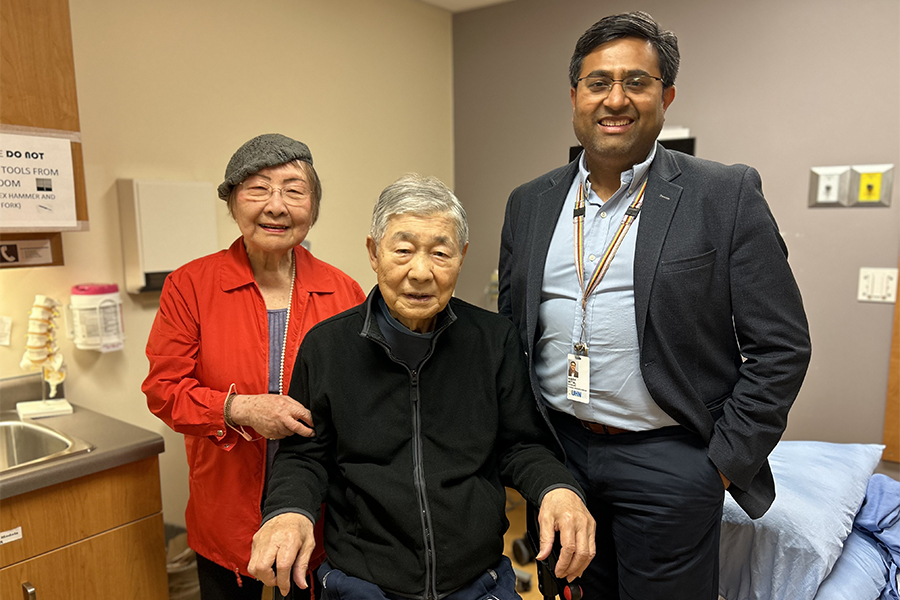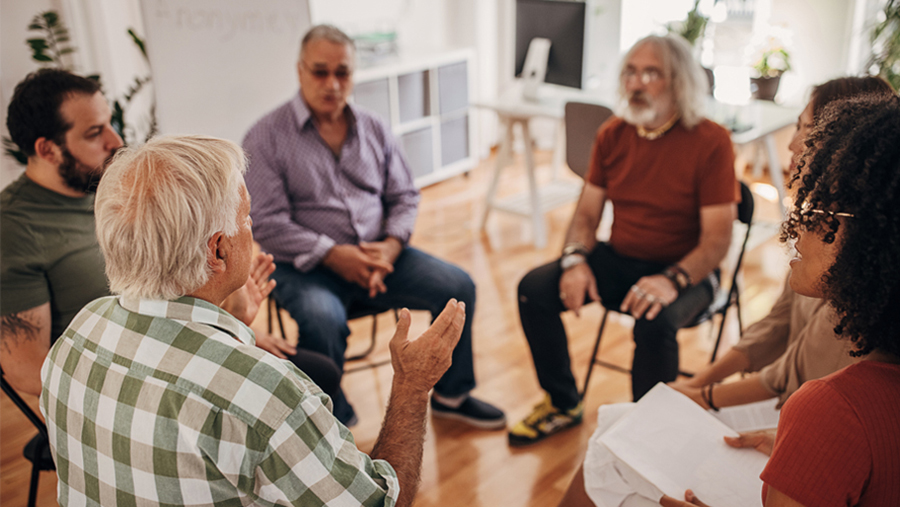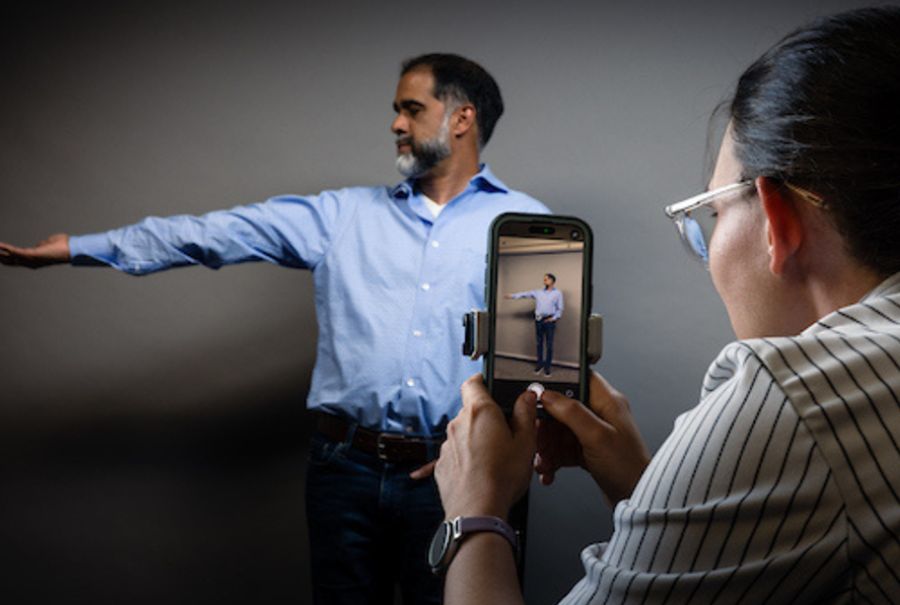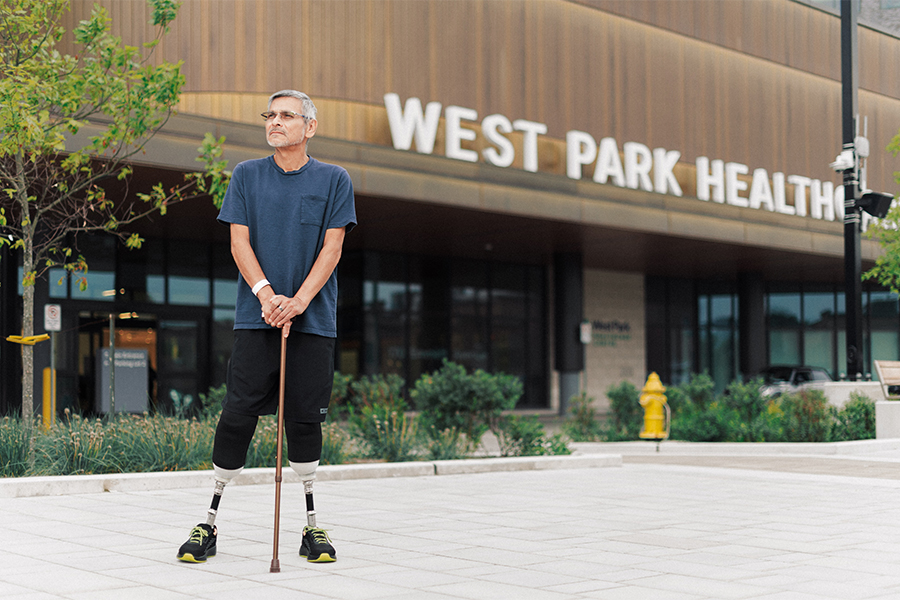
For months, Mike Lee was facing neurological decline, chronic pain, and a troubling pattern of falls. After experiencing more frequent falls, Mike’s wife, Joyce Lee, brought him to the Emergency Department at UHN’s Toronto General Hospital.
From there, Mike was admitted into the Acquired Brain Injury Rehabilitation Program at UHN’s Toronto Rehab.
Depending on his response to treatment, there was a possibility Mike’s next destination would be long-term care. A prospect both he and his family feared.
Mike, an 88-year-old husband, father, and grandfather of four, was the kind of person who never liked to sit still. This fact added to his already complex and winding path to recovery.
Mike’s admission to the Acquired Brain Injury Rehabilitation Program, a specialized program focused on helping adults with moderate to severe brain injury regain their function and independence, brought him under the care of Dr. Alan Tam.
“We realized quickly that Mike had a lot of challenges and difficulties. He was constantly falling and there was no clear single reason why,” says Dr. Tam, a physiatrist specializing in neurological rehabilitation.
After four weeks in the Acquired Brain Injury Rehabilitation program, Mike’s brain function began to improve, but he remained severely physically limited due to pain, and he needed support for everyday tasks such as using the bathroom and eating.
“We know pain can limit people. Mike’s pain kept him from getting up and moving around. So I decided to reach out to Dr. Mittal,” says Dr. Tam.
Dr. Nimish Mittal, a UHN Physiatrist and Medical Director at Toronto Rehab specializing in physical medicine and rehabilitation for chronic pain, made a discovery that would turn Mike’s treatment journey around.
“When I first saw him, Mike’s cognitive status was not perfect,” says Dr. Mittal. “We had to rely a lot on the observations of his wife, who was with him at every appointment. She told me he complained about constant back pain and that he was unable to sit or stand properly. His localized back pain was a key factor preventing his recovery.”
With the pain site localized, Dr. Mittal administered ultrasound-guided nerve block injections into the joints of Mike’s spine.
“It wasn’t until we found a way to manage his back pain effectively that things took a turn for the better,” says Dr. Mittal.
The injections brought dramatic relief. After months of being bedridden with pain, Mike could finally engage with the physical therapy and rehabilitation he needed to build his core strength.
“I felt good again after getting the injection. There was no more pain,” says Mike.
Slowly, but surely, Mike’s ability to perform everyday tasks, such as moving in and out of bed, getting dressed and walking, began to improve.
“The Doctors helped me and I started to regain strength. I could do things for myself again. I was happy when they told me I could go home,” says Mike.
After four months in the hospital, Mike finally got the green light to be discharged.
Joyce recalls the moment the excitement set in: “We were all so happy for him to come home. He returned to church, a place he would always visit regularly, and that made him feel more like himself.
“He’s even doing his own laundry again — and our son’s laundry too!”
Now back at home, Mike continues to have regular check-ins with Drs. Tam and Mittal, with the goal of completing a more permanent injection treatment to stop his pain and allow him to maintain his physical function.
The combination of Dr. Tam’s specialty in neurologic rehabilitation and Dr. Mittal’s specialty in pain rehabilitation facilitated swift, patient-centered decision-making that made a dramatic improvement in Mike’s care and quality of life.
“We have the ability to cross-connect several different specialties all under one roof, thanks to the large scope at UHN,” says Dr. Mittal.
Now, Mike is back under the roof that matters most to him: Home.
“Toronto Rehab is a real textbook-perfect place. It’s like the five-star hotel of health care,” says Joyce.
“I cannot thank our doctors and medical team enough.”

No one ever changed the world on their own but when the bright minds at UHN work together with donors we can redefine the world of health care together.


